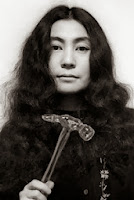On 29th October a crowd
gathered on the second floor of a villa in Zurich’s Allenmoos district to find
out whether art is, or is not, a luxury. Opening the debate Brigitte Dätwyler
based her argument – that art is a luxury – on the hard facts of art. Given the
nature of art spaces and the kind of branding associated with art, it is clear
that art is something for the wealthy 1% in the world. She continued: “On a
more personal level it may be considered a waste of time and money. It is
something that artists cannot afford to do, many times, but still they do it.
It is a luxury for them – they choose to live on the brink of poverty just to
have self-fulfilment. Self-fulfilment is the luxury.”
Nadja Baldini represented the opposite
thesis. She presented an alternative view of art to one dominated by the trio
of artist – gallery or museum – and collector. Art is not only the art market. Instead
there are other forms of art making that do not result in a product. This artistic
research generates knowledge, which cannot be sold. And art as a part of
education is no luxury: “I believe art has a transformative potential and that
it can act as questioner, can activate what we think, or can be a critical
instrument in relation to a culture. I don’t see how it can be a luxury.”
Stefan Wagner referred to Bertold Brecht’s
Threepenny Opera in defence of his thesis that art is luxury. The little-known
version Wagner cited went:
"Ihr
Herrn, die ihr uns lehrt, wie man brav leben
Und Sünd und Missetat vermeiden kann
Zuerst müßt ihr uns schon zu fressen geben
Dann könnt ihr reden: damit fängt es an.
Ihr, die ihr euren Wanst und unsere Bravheit liebt
Das Eine wisset ein für allemal:
Wie ihr es immer dreht und immer schiebt
Erst kommt das Fressen, dann kommt die Kunst.
Erst muß es möglich sein, auch armen Leuten
Vom großen Brotlaib sich ihr Teil zu schneiden"
Und Sünd und Missetat vermeiden kann
Zuerst müßt ihr uns schon zu fressen geben
Dann könnt ihr reden: damit fängt es an.
Ihr, die ihr euren Wanst und unsere Bravheit liebt
Das Eine wisset ein für allemal:
Wie ihr es immer dreht und immer schiebt
Erst kommt das Fressen, dann kommt die Kunst.
Erst muß es möglich sein, auch armen Leuten
Vom großen Brotlaib sich ihr Teil zu schneiden"
[You gentlemen who think you have a mission
To purge us of the seven deadly sins
Should first sort out the basic food position
Then start your preaching, that's where it begins
You lot, who preach restraint and watch your waist as well
Should learn, for once, the way the world is run
However much you twist, or whatever lies that you tell
Food is the first thing, art will follow on
So first make sure that those who are now starving
get proper helpings, when we all start carving]
Continuing in this vein, he asked if the people of in Spain, Portugal and Greece want museums. “Art is just about making more money. This is maybe not the way we need to support the arts... Art is a private thing – we don’t have to think about art politics. Art is like luxury – if you’re going to buy a soap, a really expensive soap, say – it’s a private thing. Art, too, is luxury.”
Stefanie Herrmann’s viewpoint was quite
different; she acknowledged and embraced the art market, “because it’s a job
creation programme for inadaptable individuals of all disciplines. Which means
that it’s a melting pot for several evil energies, and a kind of re-integration
into society for lateral thinkers, people with a particuar useless talent,
players, gamblers, corrupt people, psychopaths, terrorists, losers and so on.”
With these people gainfully employed making art, all of society will profit. “We
profit from it because we have less unemployment, less of a financial burden, fewer
handicapped people, because we no longer view them as handicapped, fewer patients,
fewer critics of the system and fewer demonstrations. And fewer criminals,
because they are embedded in another system. Legal corruption, a higher GDP, a
legal black market and an ideal market for money laundering. And – an important
point – more attractive living rooms.”
Jonathan Meese and Yoko Ono - well integrated criminals?
This was just the beginning of a rambunctious discussion that became increasingly heated as the night went on. Before pistols were drawn, the audience voted that the proposition – Stefan and Brigitte – had won the debate.
Many many thanks to our hosts and to the very spirited participants: Nadja Baldini, Brigittte Dätwyler, Stefanie Herrmann and Stefan Wagner.




Keine Kommentare:
Kommentar veröffentlichen